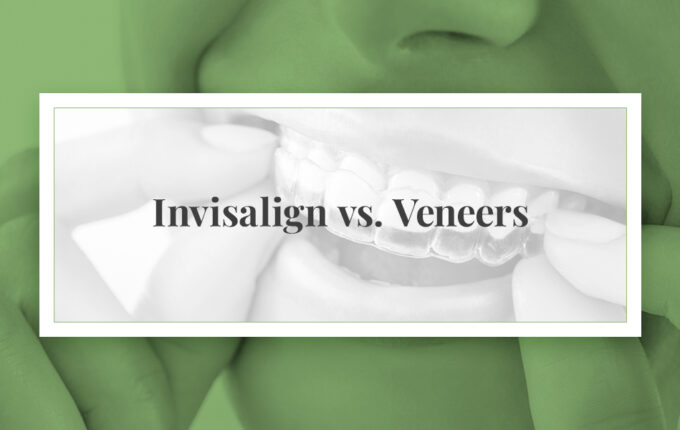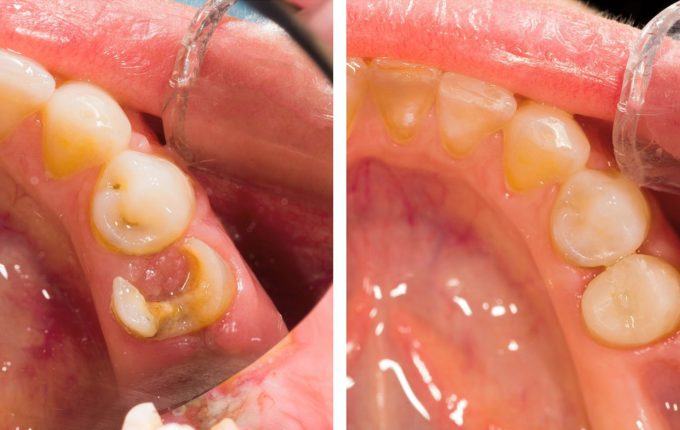The Distinction Between Veneers and Bonding

If you have cracked, yellowed or chipped teeth, you may have been told to get veneers or bonding. But what is the difference between these two options, and which one should you choose? They can both address imperfections in your teeth, and they take only one or two appointments to complete.
What Is Dental Bonding?
Dental bonding is composite resin that dentists use to smooth out gaps in the teeth. Dentists often use the procedure for chipped or fractured teeth. They apply the composite resin directly to the tooth, matching its color, and it bonds directly to the surface.
What Are Veneers?
Dentists can add veneers to your front teeth, which you will see when you smile. These products are thin porcelain sheets that can be colored to look like your teeth. The dentist will fit them right over your teeth, removing a small bit of the real teeth to secure a better fit.
Our dentist, Dr. Ifraimov, will take a 3D image of the tooth getting the veneer and send it to a lab, where your veneer will be custom fabricated. At your next visit, Dr. Ifraimov will apply the veneer to your real tooth and bond it into place.
We use porcelain for our veneers. This material is less porous than composite, which can change color after a few years when it is exposed to beverages such as coffee, red wine and soda. The change may not be as noticeable with a bonded tooth — where the composite takes up just a bit of space on the tooth — but when composite is used for a veneer that covers the whole tooth, the color change can be striking.
What Is the Difference Between Veneers and Bonding
Veneers and bonding can address the same problems. How can you decide which one to use? The answer may depend on a number of factors, such as:
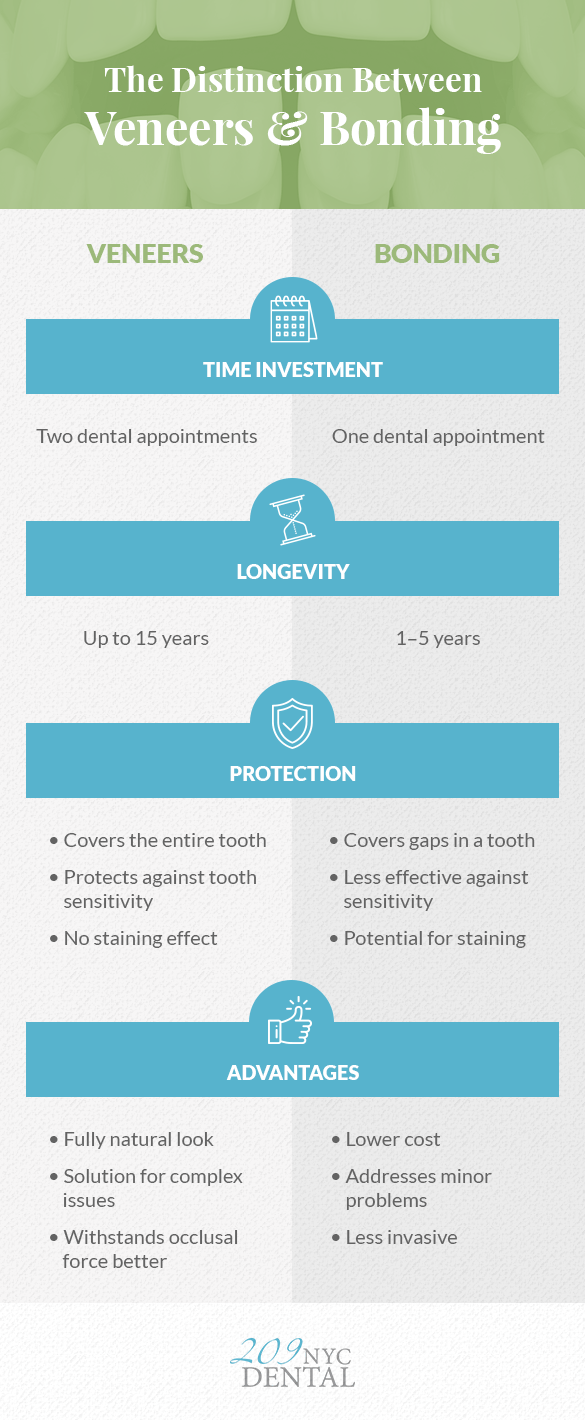
- How much time do you have? You can get bonding in one dental visit, while veneers will require two.
- How long do you want the solution to last? Bonding is less permanent. You may get up to five years out of the bonded tooth before you have to replace the bond. Veneers last up to five times longer than bonding.
- Do you want to protect sensitive teeth? Veneers offer greater protection because they are placed over the entire tooth. They cover up the nerves in the tooth, so you will have less sensitivity with this option.
- Are you worried about further staining? Bonding can stain the tooth since it is a small area being covered. Veneers will not.
Bonding is a simpler procedure that costs less than getting veneers. It may be the better choice to address minor problems. On the other hand, veneers blend into the mouth and look completely natural. To deal with more complex issues and get a dental solution that will last for the long term, select veneers.
If you are still trying to decide on veneers vs. bonding, it may be time to enlist a professional. Call the 209 NYC Dental office at 212-355-2290 to get an opinion and make a teeth bonding appointment in NYC.
 Our History
Our History
 Our Providers
Our Providers
 About Us
About Us
 Blog
Blog
 Contact us
Contact us
 Diagnostic & Preventive
Diagnostic & Preventive
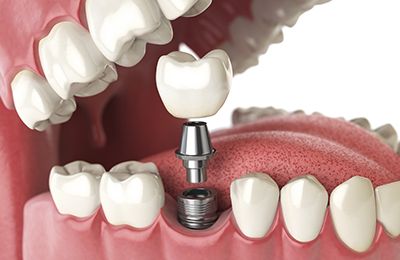 Implant Dentistry
Implant Dentistry
 Clear Braces - Invisalign
Clear Braces - Invisalign
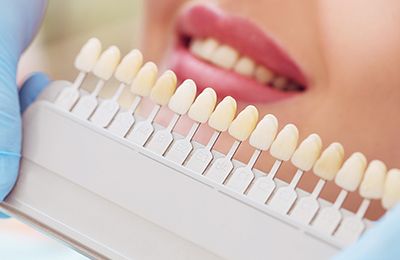 Cosmetic Dentistry
Cosmetic Dentistry
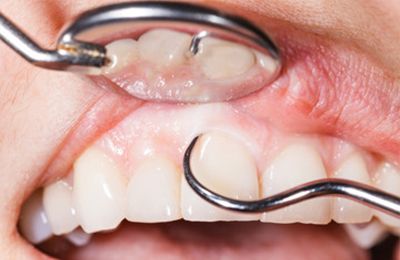 Periodontics
Periodontics
 Patient Forms
Patient Forms
 Payment Information
Payment Information
 Insurance Options
Insurance Options
 CareCredit Dental
CareCredit Dental
 Appointment Policy
Appointment Policy
 Free Consultation
Free Consultation
 Complimentary Teeth Whitening
Complimentary Teeth Whitening
 Teeth Whitening
Teeth Whitening
